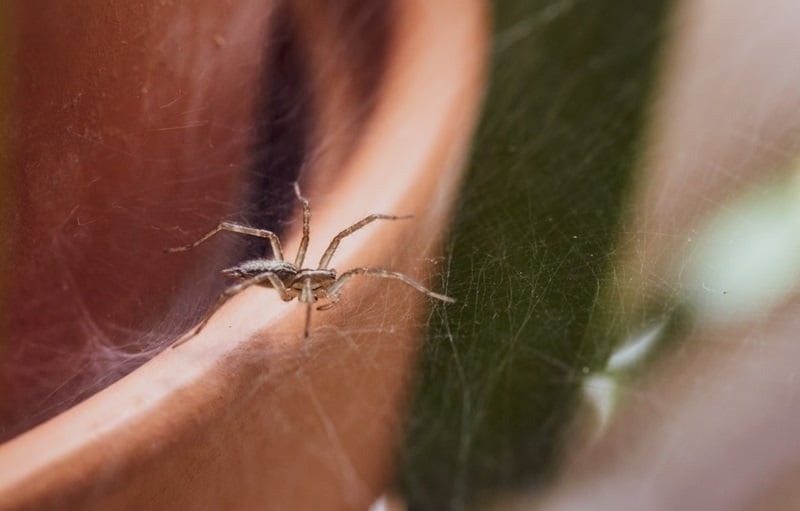Can Pest Control Help with Spiders in Meridian Homes?

Finding a spider in your home can be an unsettling experience. While a single spider may not seem like much, a frequent appearance can indicate a larger problem. For homeowners in Meridian, ID, pest control can play a crucial role in managing spider populations and preventing these unwanted guests from becoming a constant presence. Here’s an in-depth look at how pest control in Meridian, ID can help tackle spider infestations and why a professional approach can make a world of difference in maintaining a spider-free home.
Why Do Spiders Enter Homes?
Spiders are quite different from many other pests; they don’t necessarily come indoors seeking warmth or food the way insects do. Instead, spiders enter homes primarily for two reasons: to hunt and to find safe spaces for resting and laying eggs. Insects are the main food source for spiders, and if spiders are continually appearing in your home, it likely means there’s a reliable supply of other pests that are attracting them.
This means that a good spider control strategy will also address any underlying insect issues, creating a less hospitable environment for spiders. Professional pest control services take a comprehensive approach that includes managing both spiders and their food sources.
Common Spiders Found in Meridian Homes
Before diving into control methods, it’s essential to know which spiders are commonly found in Meridian homes. Some of the most prevalent species include:
- House Spiders: These small, non-aggressive spiders are common across the U.S., including Meridian. They spin webs in out-of-the-way places and tend to stay put unless disturbed.
- Wolf Spiders: Known for their speed, wolf spiders do not spin webs but hunt for food directly. They can be larger and more intimidating in appearance.
- Hobo Spiders: These spiders are typically found in basements, garages, or other dark, moist areas. While they aren’t overly aggressive, their bites can cause discomfort.
- Black Widows: Black widows are known for their venomous bites. Although they aren’t as common indoors, they may occasionally seek shelter in garages or dark corners, posing a risk if left unmanaged.
Understanding which species you’re dealing with can help in determining the severity of the problem and guiding the most effective treatment methods.
Seasonal Patterns and Spider Activity in Meridian
Spiders don’t follow the same seasonal patterns as other pests. They are most active in warmer months, when insects are also abundant. However, as the weather cools, many spiders begin to move indoors. This can make winter just as much of a problem as summer. Additionally, the seasonal change may drive pests into homes for warmth and food, bringing more spiders along with them. For example, an influx of flies or beetles during the fall can attract hunting spiders that follow the trail.
Meridian’s climate, which combines warm, dry summers with colder, wet winters, provides an environment where both pests and spiders can thrive. Because of these year-round factors, homeowners may experience consistent spider activity if preventive measures aren’t taken.
The Role of Pest Control in Spider Management
When it comes to controlling spiders, pest control professionals use a multi-faceted approach that targets the root of the issue, not just the symptoms. Here’s a look at how pest control services help reduce and manage spider populations in Meridian homes:
- Thorough Inspections
The process begins with a detailed inspection of your home. Pest control experts examine potential entry points, such as cracks in windows, doors, foundations, and poorly sealed screens. They also assess areas where spiders are commonly found, like attics, basements, and garages. This inspection helps identify not only the spiders’ hiding spots but also sources of food that may be attracting them.
By understanding the full scope of the infestation, pest control providers can create a targeted plan that addresses specific problem areas in your home. - Addressing Food Sources
Since spiders rely on insects as their primary food source, managing insect populations goes hand-in-hand with controlling spiders. Pest control treatments aim to reduce the presence of flies, beetles, ants, and other insects that might be drawing spiders indoors. By cutting off the food supply, you’re essentially discouraging spiders from staying around.
Professional pest control services typically use treatments designed to target a broad range of common household pests, ensuring that spiders are left without an easy source of food. This is a proactive step that goes a long way in managing spider populations before they become a problem. - Regular Web Removal
Spiders are creatures of habit, often returning to the same places where they’ve built webs before. Regularly removing webs is an effective way to make your home less inviting. However, web removal can be a time-consuming task, especially in high or hard-to-reach corners. Pest control professionals handle this task efficiently and can ensure that even hidden or difficult areas are cleared.
Removing webs not only discourages spiders from sticking around but also signals that the area is not a safe or stable environment for nesting, prompting them to move elsewhere. - Applying Safe and Effective Treatments
To eliminate spiders and other pests safely, pest control providers use carefully selected treatments that are safe for both families and pets. These treatments vary in application depending on the extent of the infestation and the areas of the home that need coverage.
Treatments for spiders are often designed for long-lasting protection, meaning that even after the initial application, your home remains a less hospitable environment for both spiders and insects. The aim is to create a barrier that deters spiders from entering while also addressing any new pests that might be drawn indoors. - Long-Term Prevention Plans
Many pest control companies offer maintenance plans that help keep spider populations low year-round. These regular treatments can address seasonal pest issues and provide ongoing support for keeping spiders out. A long-term prevention plan is particularly beneficial in areas like Meridian, where the climate can encourage pest activity throughout the year.
Spider Prevention Tips for Homeowners
While professional pest control is highly effective, homeowners can take steps to prevent spiders from entering the home in the first place. Here are some practical tips for spider prevention:
- Seal Entry Points: Spiders can squeeze through surprisingly small cracks and gaps. Regularly inspect and seal openings around doors, windows, and foundations to keep spiders from entering. Use weather stripping, caulk, or other sealants as necessary.
- Keep Your Home Dry: Many spiders are drawn to humid environments. Use dehumidifiers in basements, laundry rooms, and bathrooms to make these areas less appealing. Ensuring proper ventilation in these spaces can also help reduce humidity levels.
- Reduce Clutter: Clutter provides plenty of hiding spots for spiders. Keeping storage areas organized and reducing the number of cardboard boxes, bags, and piles of old items can make your home less attractive to these pests.
- Regular Cleaning: Regularly cleaning floors, corners, and ceilings can help eliminate cobwebs and reduce the likelihood of spiders setting up camp. Regular vacuuming and dusting can be surprisingly effective at disrupting spider habitats.
- Turn Off Exterior Lights: Lights attract insects, which in turn attract spiders. Try to limit the use of outdoor lighting or use motion-sensor lights to reduce the number of insects gathering near your home at night.
When to Call a Professional
While DIY efforts can make a difference, professional pest control services offer a level of expertise and efficiency that can’t always be matched by at-home methods. A professional service can provide targeted solutions that are tailored to your home’s unique needs, ensuring effective and long-lasting results. For persistent spider problems or cases where DIY treatments don’t seem to be enough, professional pest control offers a comprehensive solution.




